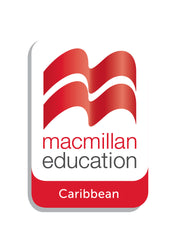
Debbie Roberts on the #YCES2023
- ENTRIES NOW CLOSED -
I am so excited to be one of the Judges for this competition. If you are a teacher or student in Year 1 to Year 11 then you are invited to sign up now. All you need is a team of 1-4 students and a teacher and must be from one of the following countries: Anguilla, Antigua and Barbuda, Aruba, Bahamas, Barbados, Belize, British Virgin Islands, Cayman Islands, Dominica, Grenada, Guyana, Jamaica, Montserrat, St Kitts and Nevis, St Lucia, St Maarten, St Vincent and the Grenadines, Trinidad and Tobago, Turks and Caicos. There are two categories for this competition; Primary and Secondary.
To enter you will need to submit a short video presentation, lasting no longer than 5 minutes, a word document or poster. This should outline the entry and must include:
- A title for your entry
- How your entry addresses climate change and its impacts
- Support your ideas with current, reliable research that is scientifically correct
- The estimated total cost for the project
- The estimated time that it would take to develop and implement it
- The materials needed and any alternatives that could be used
- Why you think you should win!
The secondary should follow the same outline as above but must also include:
- A video or photographs of any prototype (if you have one) and an evaluation of its effectiveness
- Suggestions for improvements and their reasoning behind these
- An honest and realistic conclusion about the success of your idea
All entries should be emailed to: caribbean@macmillaneducation.com with the subject line ‘Entry for Young Caribbean Environmental Scientist Competition’ and:
- The Name of the teacher who is registering the team(s) to take part
- School name and the Country where the school is.
There is lots of time to submit entries as the last date is 23.59 BST on 31st March 2023.
Being a teacher myself I imagine this will come round very quickly in the school calendar so I advise entering as soon as possible. Macmillan want you to win so badly that some of the judges are willing to provide mentoring during the application process and throughout the competition. All you need to do is form a team and come up with a plan. Ask the judges for their support then submit the final plan. Judging will take place during April 2023 with the winner and runner up for Primary and secondary entries to be announced on 28th April 2023.
The prizes are well worth the effort with winners for secondary receiving
- 1 half day of hands-on science delivered by Dr. Claire Durant
- 1 class set of 5 STEM Builder kits
- 1 class set of 25 Human and Social Biology for CSEC® Examinations textbooks
The Runner-up receiving
- 1 class set of 5 STEM Builder kits
- 1 class set of 25 Human and Social Biology for CSEC® Examinations textbooks
And Primary winners receiving
- 1 half day of hands-on science delivered by Kavelle Hylton
- 1 class set of 5 STEM Builder kits
- 1 class set of 25 Mission: Science Student’s Books and 25 Mission: Science Workbooks
The Runner-up receiving
- 1 class set of 5 STEM Builder kits
- 1 class set of 25 Mission: Science Student’s Books and 25 Mission: Science Workbooks
We would like as many applicants as possible so please share this blog with any contacts in school that you might have. The prizes are definitely a driving force to become involved but this competition is also a great opportunity for students to learn numerous enquiry-based learning skills that can be used cross curricular and for life.
This competition requires students to work as a team alongside a teacher, to identify a problem and then design realistic and doable solutions through scientific investigation. Teams will have to communicate and collaborate sharing their ideas to complete the competition entry. After acceptance the teams will have to consolidate their ideas into a design that can be investigated and sound data collected. The entrants will analyze their findings and use these to draw evidence-based conclusions. This will result in design amendments and ideas for future investigations. The teams will then incorporate all of this into a final presentation requiring creativity and imagination. This is a real and rare experience for students to engage with the scientific procedure to address a topical and real-world problem. Just like all Scientists from the past the present and the future do.
As the lead judge I look forward to being involved in your application and final entries.
Good Luck! But you don’t need that you are amazing scientists and we will even support you!
Debbie Roberts
To find out more about the competition, including what you need to do, how to enter, eligibility, prizes and more, click here.

